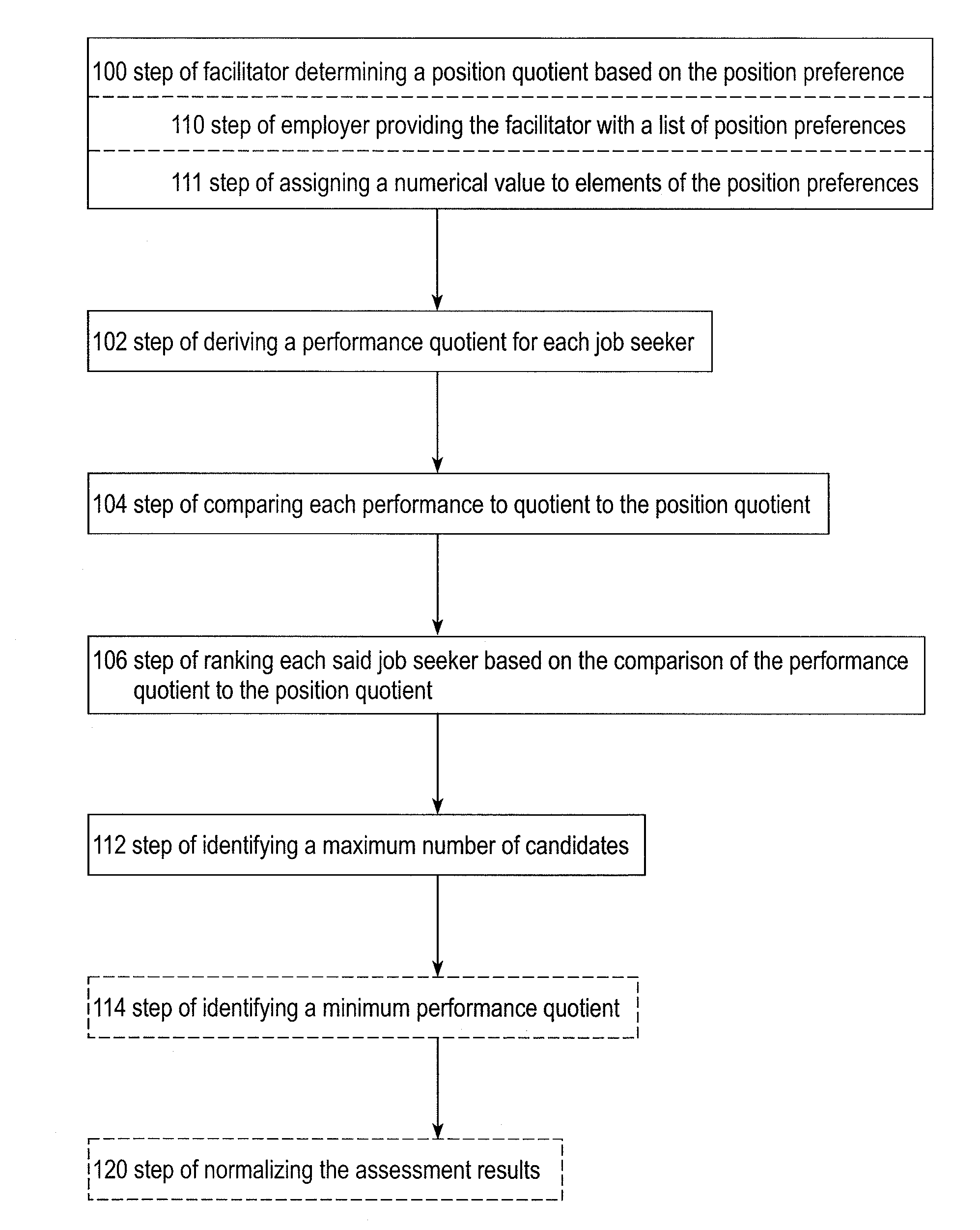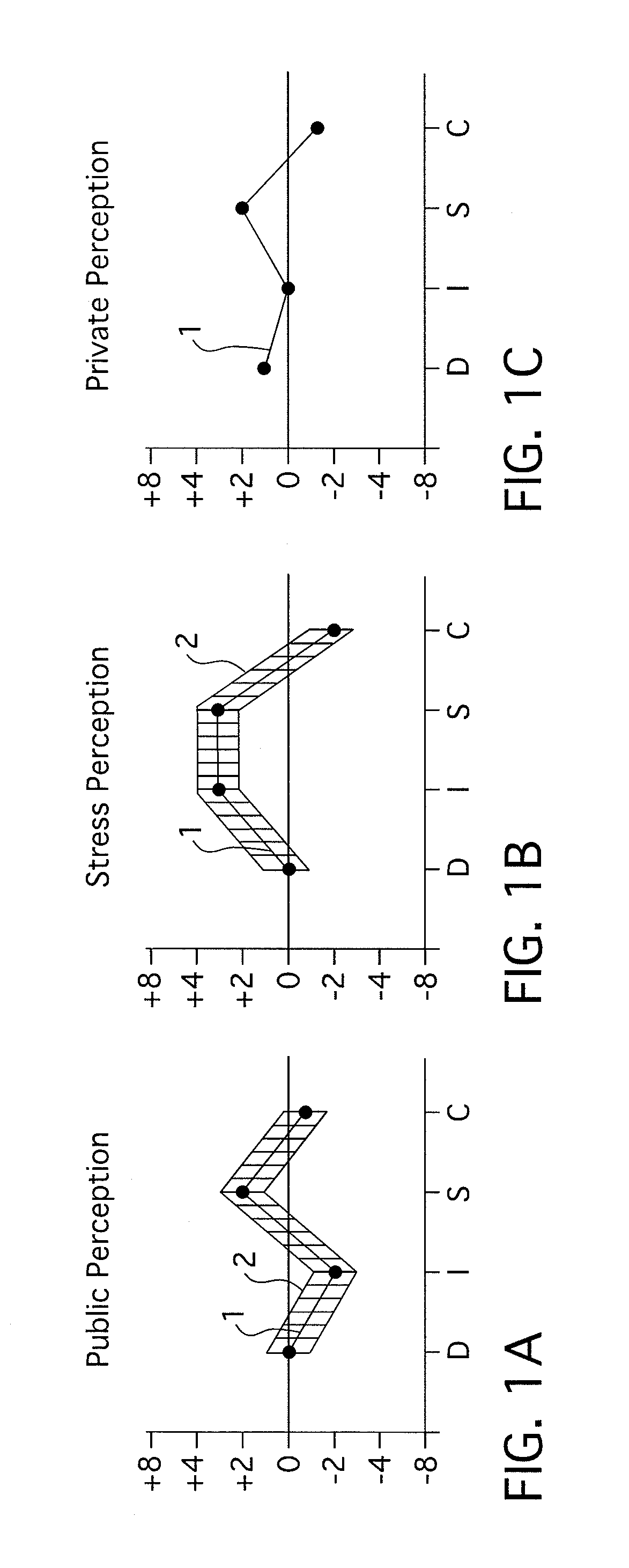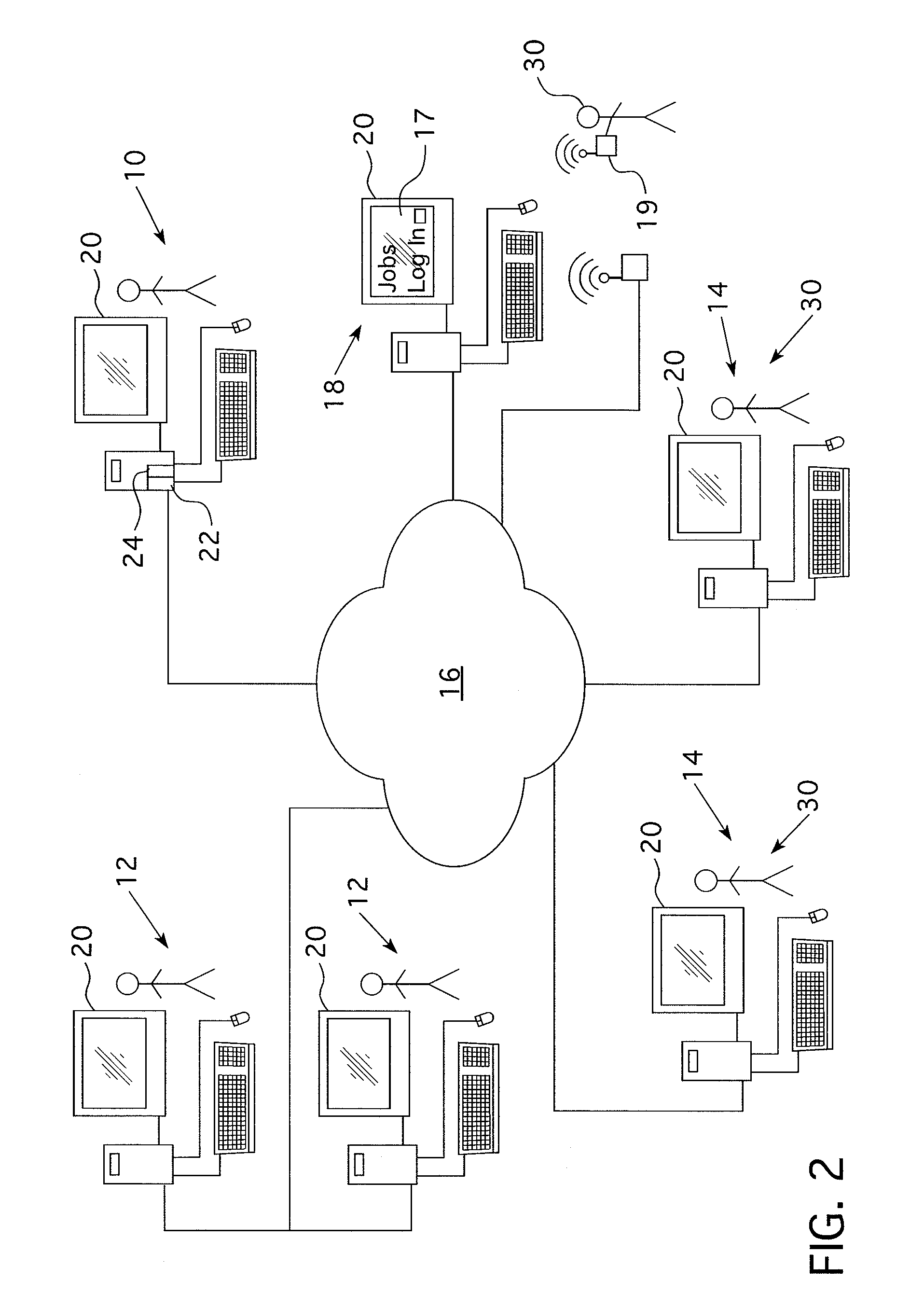Method of matching employers with job seekers
- Summary
- Abstract
- Description
- Claims
- Application Information
AI Technical Summary
Benefits of technology
Problems solved by technology
Method used
Image
Examples
Embodiment Construction
[0038]As used herein, “suitability data” includes resumes, assessment results, references, and / or other information that indicates a person's suitability for an available position.
[0039]As used herein, a “facilitator” may be independent of the employer, such as but not limited to, an independent contractor, or may be related to the employer, such as but not limited to, a human resources department or a single person tasked with screening job seekers.
[0040]As used herein, “employer” is any entity that employs others. An employer may be referred to as an individual or otherwise personified, but this is not limiting on the claims.
[0041]As used herein, a “job seeker” is any person who is looking for a job. The person may respond to a specific job posting or may simply provide their suitability data in a forum such as an Internet employment site. It is noted that, at the time this method was being developed, there were over one hundred million job seekers on various Internet employment s...
PUM
 Login to View More
Login to View More Abstract
Description
Claims
Application Information
 Login to View More
Login to View More - R&D
- Intellectual Property
- Life Sciences
- Materials
- Tech Scout
- Unparalleled Data Quality
- Higher Quality Content
- 60% Fewer Hallucinations
Browse by: Latest US Patents, China's latest patents, Technical Efficacy Thesaurus, Application Domain, Technology Topic, Popular Technical Reports.
© 2025 PatSnap. All rights reserved.Legal|Privacy policy|Modern Slavery Act Transparency Statement|Sitemap|About US| Contact US: help@patsnap.com



